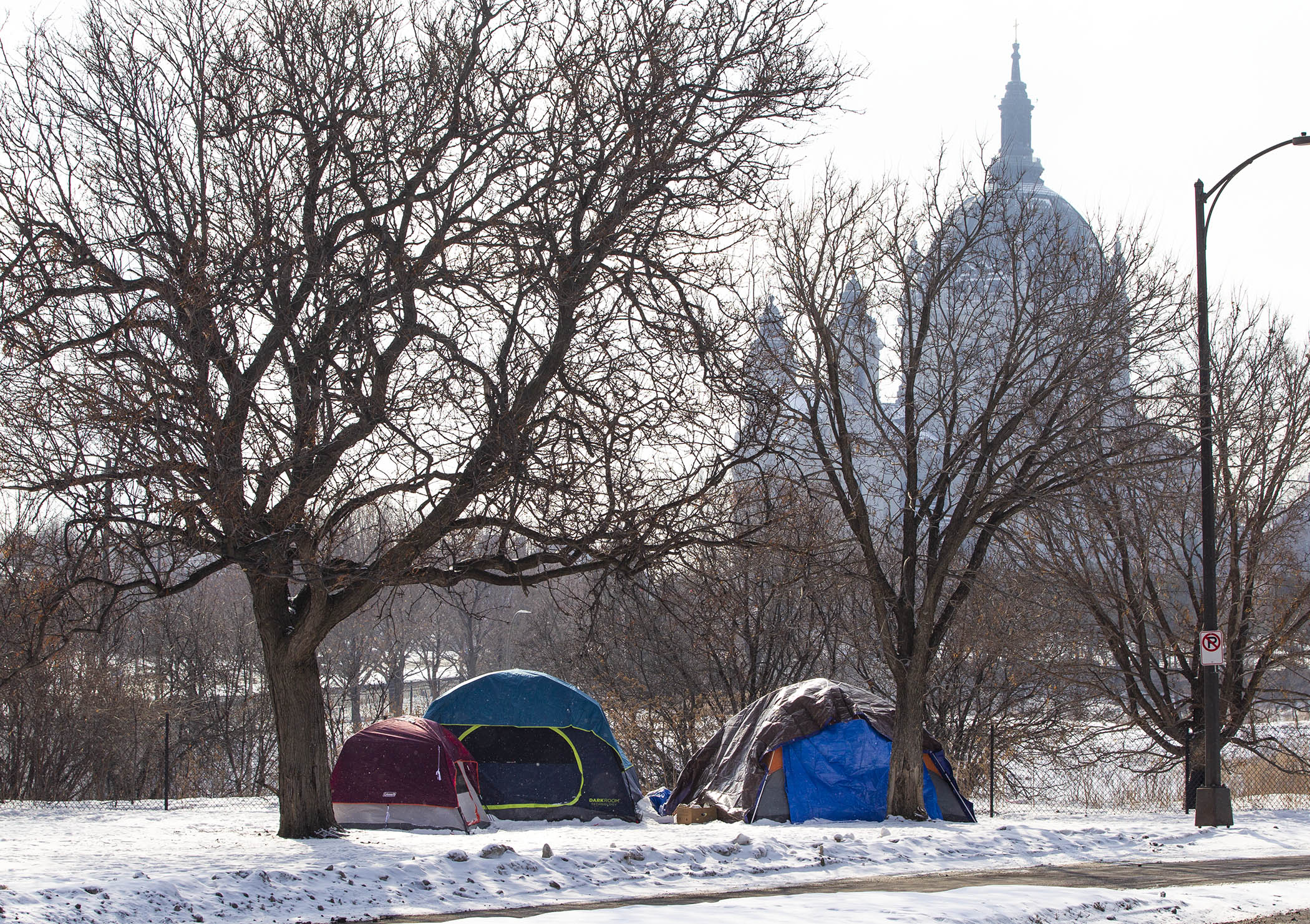Division report proposes additional $146 million funding to combat homelessness this biennium

Creating and improving more shelter space, increased efforts to combat homelessness among youth and funding those helping to address homelessness issues are among the focuses of the division report from the House Preventing Homelessness Division.
HF4255, sponsored by Rep. Aisha Gomez (DFL-Mpls) and replaced by a delete-all amendment on Wednesday, includes an additional $145.95 million over current biennial funding and $92.7 million above the current budget for programs in the next biennium. The funds would go to programs and services, such as the Homeless Youth Act, safe harbor grants, emergency shelters, emergency service grants and for Hennepin and Ramsey County services.
[MORE: See the spreadsheet]
The bill was approved on a 7-4 party-line vote and sent to the House Human Services Finance and Policy Committee. There is no direct Senate companion, though the Senate has heard companion bills to many of the bills included in the report.
“(The report) that we put together today is really a transformative step for our homelessness response system in Minnesota. It responds directly to the needs that we’ve heard over the last eight weeks, and the last two years, and I can only assume for years and decades before this committee ever existed, from service providers and advocates, from local government partners and, most critically, from unhoused people and formerly unhoused people themselves,” said Gomez, the division chair.
The report doesn’t include the fiscal impact of HF3568, one of the bills it includes, which is a sticking point with Republicans. An updated fiscal note is expected before the proposal moves further.
“I think it’s probably inappropriate for us to move forward including this in a bill when we have no idea what the cost will be. We just know that there’s going to be a fiscal impact,” said Rep. Anne Neu Brindley (R-North Branch).
The bill would appropriate $75 million in fiscal year 2023 for the development, improvement or expansion of emergency shelter facilities.
An amendment unsuccessfully offered by Neu Brindley would require a partial match by grant recipients.
“This simply would require entities to, frankly, have skin in the game,” Neu Brindley said. “There are very few grants that we do from the state that don’t require some kind of a match.”
The Minnesota Interagency Council on Homelessness reported earlier this session that while homelessness dropped by 5% in Minnesota from 2014-2020, the rate of unsheltered homeless has risen 145%.
The emergency services grant program would be appropriated an additional $35 million in fiscal year 2023 and a base appropriation of $25 million would be set in fiscal years 2024 and 2025 to fund emergency services for homeless people, such as emergency shelters.
The Homeless Youth Act would be funded with $10.3 million in fiscal year 2023 and $20 million over each year of the next biennium for a total of $52.3 million. The act, established in 2006 to award grants to providers who are committed to serving homeless youth and youth at risk of homelessness, covers people age 24 and under.
The bill would appropriate $40.5 million over the current and following bienniums for a safe harbor program for exploited youth.
Other provisions in the bill would:
- extend the duration of transitional housing from 24 to 36 months;
- reduce the countable income for social security income recipients in certain housing from 100% to 30%;
- set the countable income for recipients of veteran affairs benefits at 30%;
- expand the final report from the task force on shelter to Dec. 15, 2022;
- require a study of prevalence of pregnancy and parenting among homeless youths; and
- require a study on survivors of sexual exploitation and trafficking.
“This is the moment,” Gomez said. “This is the right time for us to step up and make a significant investment in these profound needs that we’re experiencing in our communities across the state.”
These bills have been incorporated in part or in whole into the report:
Related Articles
Search Session Daily
Advanced Search OptionsPriority Dailies
Speaker Emerita Melissa Hortman, husband killed in attack
By HPIS Staff House Speaker Emerita Melissa Hortman (DFL-Brooklyn Park) and her husband, Mark, were fatally shot in their home early Saturday morning.
Gov. Tim Walz announced the news dur...
House Speaker Emerita Melissa Hortman (DFL-Brooklyn Park) and her husband, Mark, were fatally shot in their home early Saturday morning.
Gov. Tim Walz announced the news dur...
Lawmakers deliver budget bills to governor's desk in one-day special session
By Mike Cook About that talk of needing all 21 hours left in a legislative day to complete a special session?
House members were more than up to the challenge Monday. Beginning at 10 a.m...
About that talk of needing all 21 hours left in a legislative day to complete a special session?
House members were more than up to the challenge Monday. Beginning at 10 a.m...